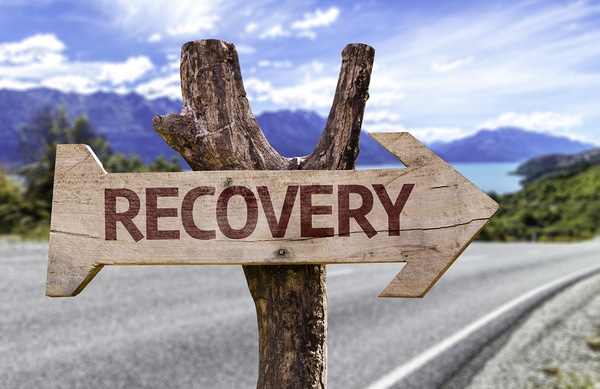Addiction is a brutal form of enslavement. Psychology Today’s “Breaking Free from Addiction” describes it this way:
“All addictive behaviors have at least these two things in common: (1) They help people cut off painful feelings and (2) They are strongly influenced or controlled by a destructive thought process that both seduces the person into the behavior and punishes them for indulging.”
When receiving addiction treatment, you may feel that breaking this destructive cycle is too difficult to achieve. You are not alone. Despite how you may be feeling right now, there is abundant evidence that you can succeed. With the tools you acquire at your drug rehab center, and with the strength you may doubt you have, you can break free from enslavement to addiction.
Jane’s Story
Consider the true story of Jane (whose name has been changed to protect her privacy):
Living with a single dad, Jane grew up with two sisters. While her sisters had many friends, Jane often felt alone and developed some emotional problems early on that would have a devastating impact on decisions she would later make. At the age of fifteen, Jane’s father attempted to abuse her sexually, and she left home to escape the danger.
Before long, however, young Jane’s situation took another bad turn when she became pregnant and chose to marry the father of her child. The father refused to work, leaving Jane to struggle to maintain a home for herself and her child. Ultimately, she could not do it alone, and decided to make the heartbreaking decision to give her young child up for adoption. All of this happened before Jane was 21 years old.
At the age of 21, Jane wanted a new start and decided to move to another state to begin anew. However, just before she left, her younger sister introduced her to cocaine, saying that it would help Jane stay awake.
Jane’s first foray into substance abuse was unpleasant, as she did not like the way cocaine made her nose feel. In short order, however, she found out, through a new boyfriend, that there were other ways to use cocaine, and she began to shoot up cocaine regularly. For the next three years, she stayed with her addict boyfriend, reinforcing her own addictive behaviors with him.
When that relationship deteriorated, Jane fell for another man, who was wanted by the authorities in the state where she lived. So, she picked up stakes, moved with him to another state, and bore his son. When their son was small, Jane went to work while the man stayed home with the child, smoking crack during the day. Before long, Jane was smoking crack as well. She lost her job, her house, and her son.
For the next 24 years, Jane continued the cycle of addiction, dating drug users, having their children, and leaving each of them before the children were even a year old. Though she had five children, she lost contact with all of them on and off during that time, as addiction kept her from developing warm, close, healthy attachments to them. She also learned, during that time, that she was HIV positive.
In and out of jail over these years, Jane was twice sentenced to three years in prison. For her second prison term, Jane was ordered by the court to receive treatment for her addiction. With three classes a week and AA meetings, she did the work and got clean for the first time in years. She thought she was free from the bondage of addiction.
However, just as she was finishing up her treatment, two things happened that catapulted her back into destructive behaviors. Her current boyfriend left her, and her son was sentenced to 30 years in prison. Appearing before the same judge who had sentenced her son, she lost control. Soon, she fled the recovery house and relapsed into substance abuse.
Seeking a haven with her daughter, Jane was soon found by the police and taken back into custody. While working with a caring counselor in drug rehab, she came to realize that she was not only hurting herself, but she was also hurting all of those around her who cared for her. She learned that, while she could not change the things that had happened to her and the choices she had made based on those events, she could control her future. She learned that recovery is possible and that she is the one with the power to effect real change in her life.
Thankfully, after coming to understand this basic truth, Jane has been sober for nineteen months and counting. She enjoys a closer relationship with her daughter and grandchildren and supports her son, who is still incarcerated. Her doctors say that, despite her HIV status, she is doing well physically. She has a small business and is even able to hire other recovering addicts who are having trouble finding gainful employment.
Jane says that now, finally, she is the person she always wanted to be, the one who is making a difference in the world, for the better.
Recovery is Within Your Reach
Jane did it. She broke the cycle of addiction. And she is not alone. There are many recovering addicts whose stories can serve to inspire you to continue on the road to recovery. Find a program, and get the help you need to find your own strength.

House offers those with substance abuse problems the tools they need to achieve sobriety. The Harris House program works. Consider these comments from our clients who have successfully traveled the road to recovery:
“I came to Harris House broken and insecure. Harris House gave me the education and tools to help me stay sober. I am now able to be secure with myself again.”
“After multiple suicide attempts and jail, I can tell you how lucky I was in coming to Harris House. I actually have relationships with people, and they are not based on grams or fluid ounces. I found out in recovery what friends and family are. Being vulnerable helps you heal. Harris House was a golden opportunity that permanently changed how I think. If you are coming to Harris House, I can tell you how lucky you are about to be.”
We’re Here for You
Harris House is here, waiting for your call. You can do this. Contact us today to learn about admissions.








